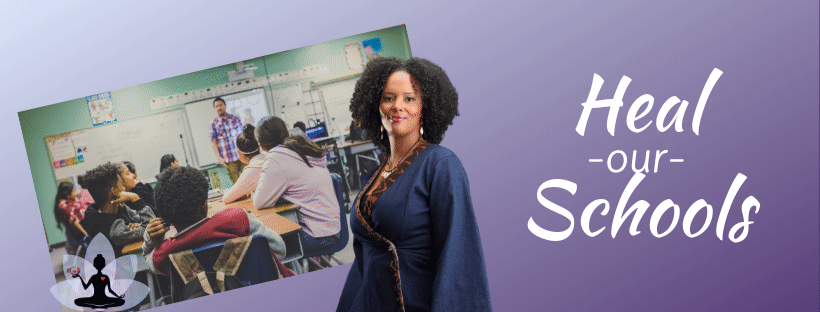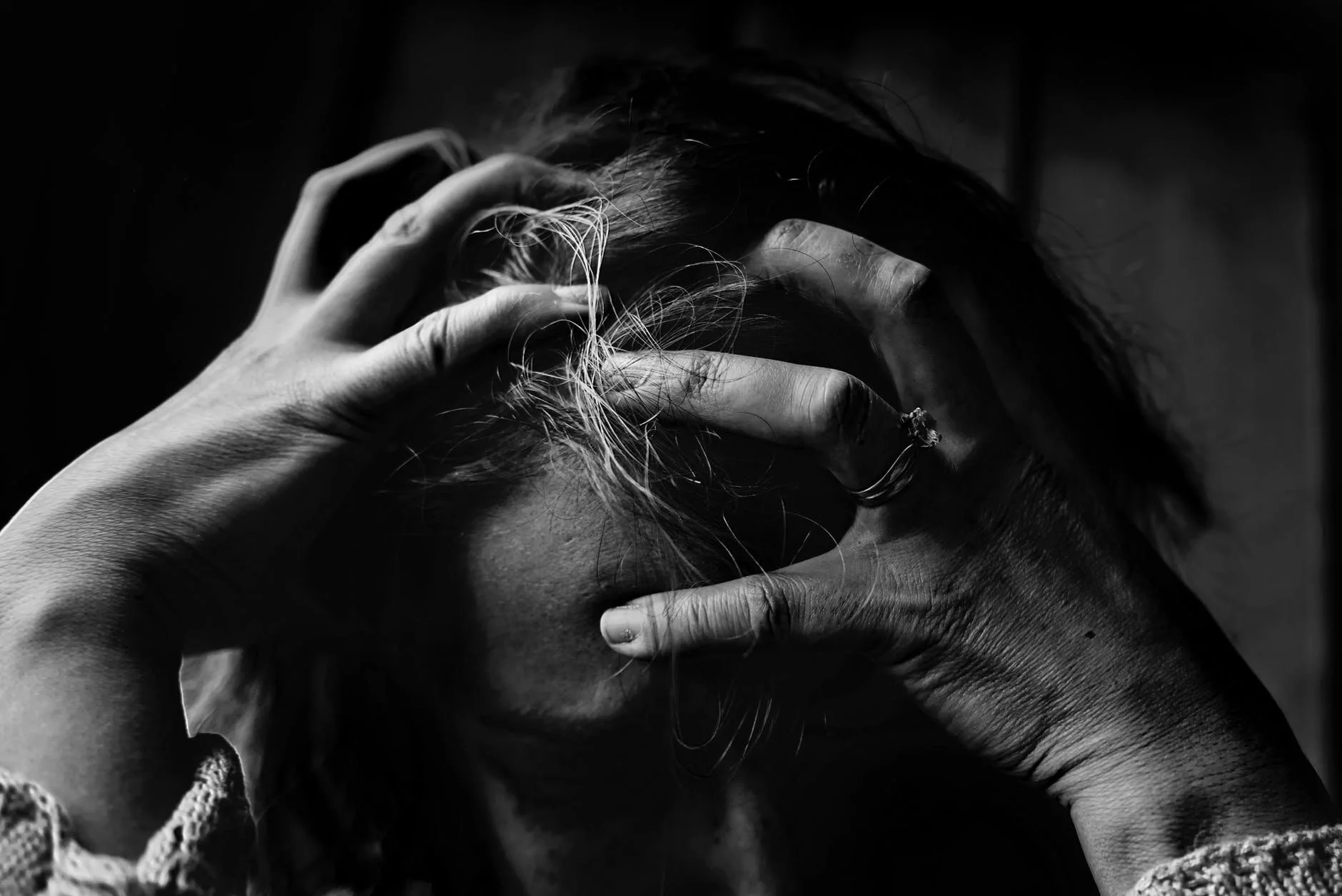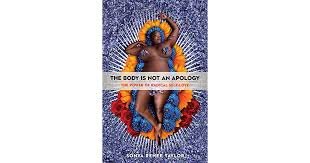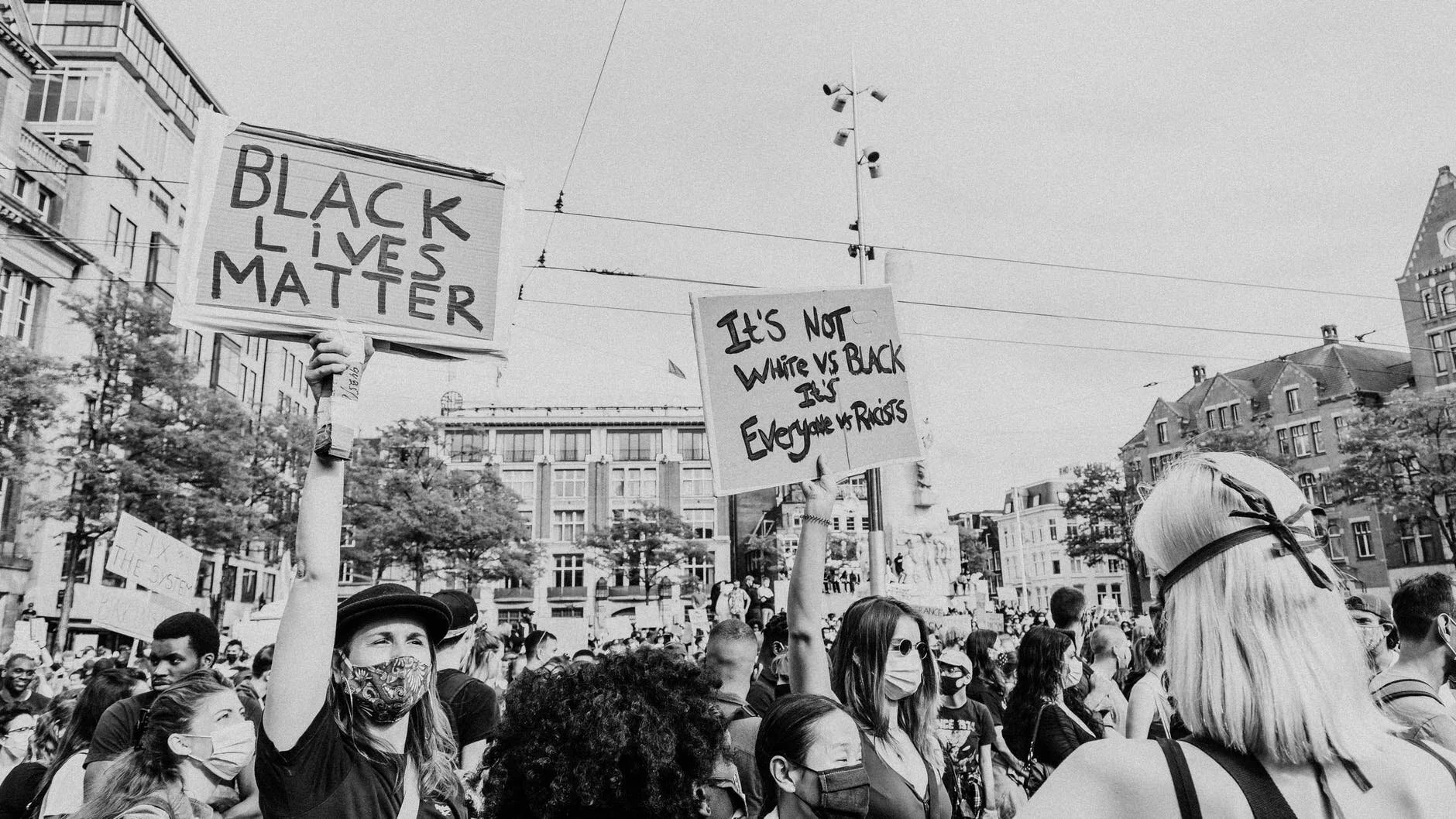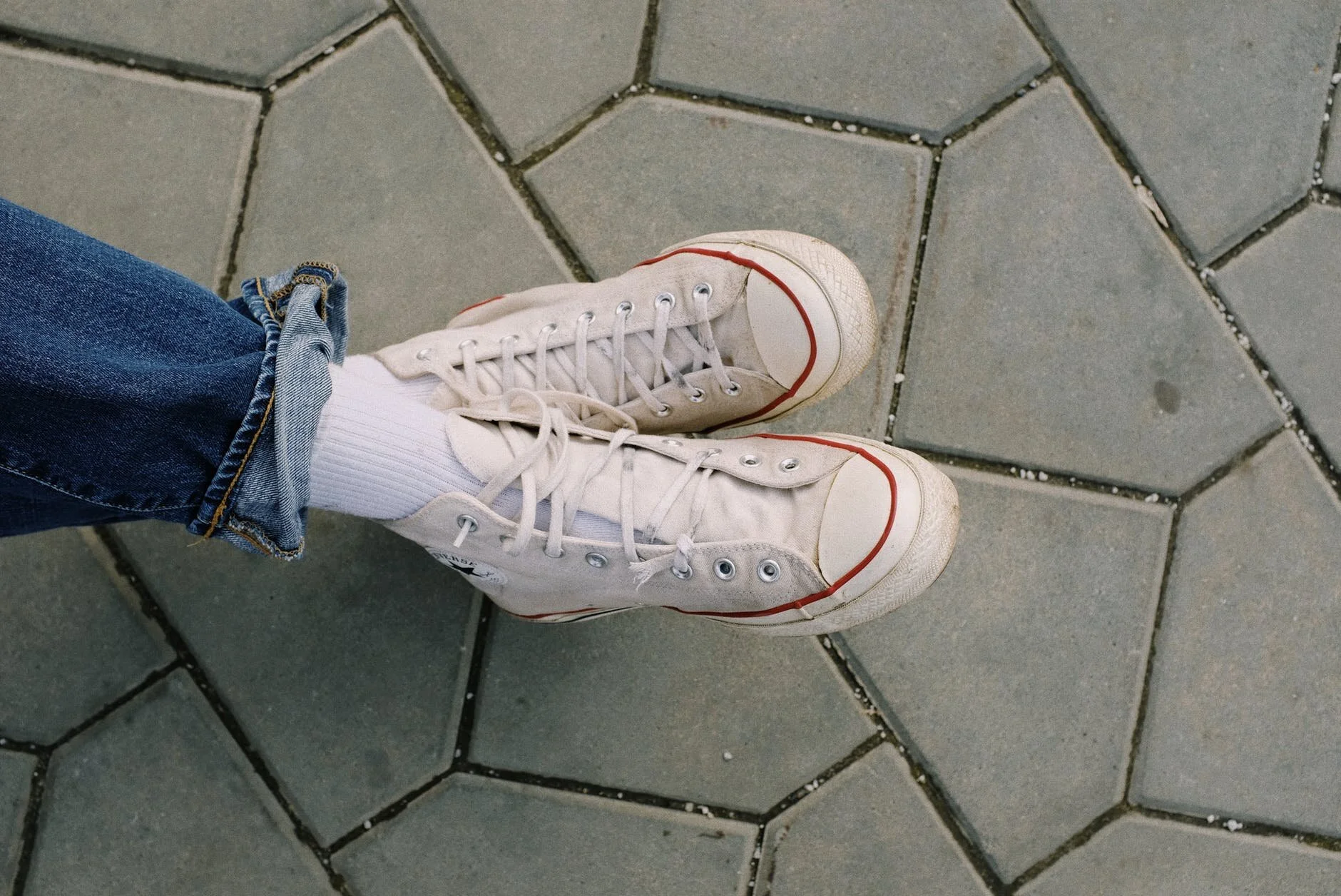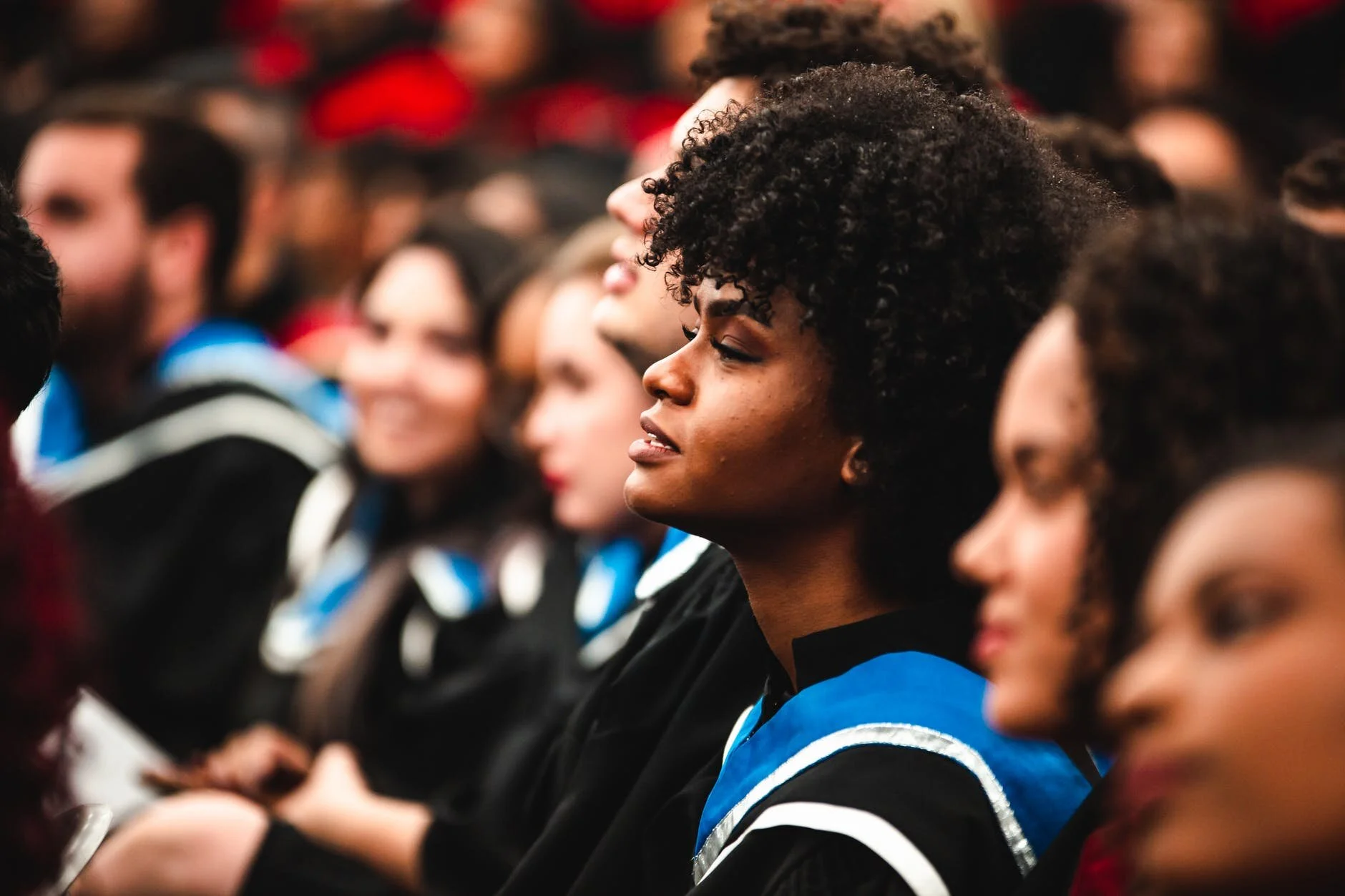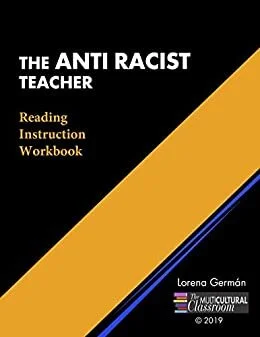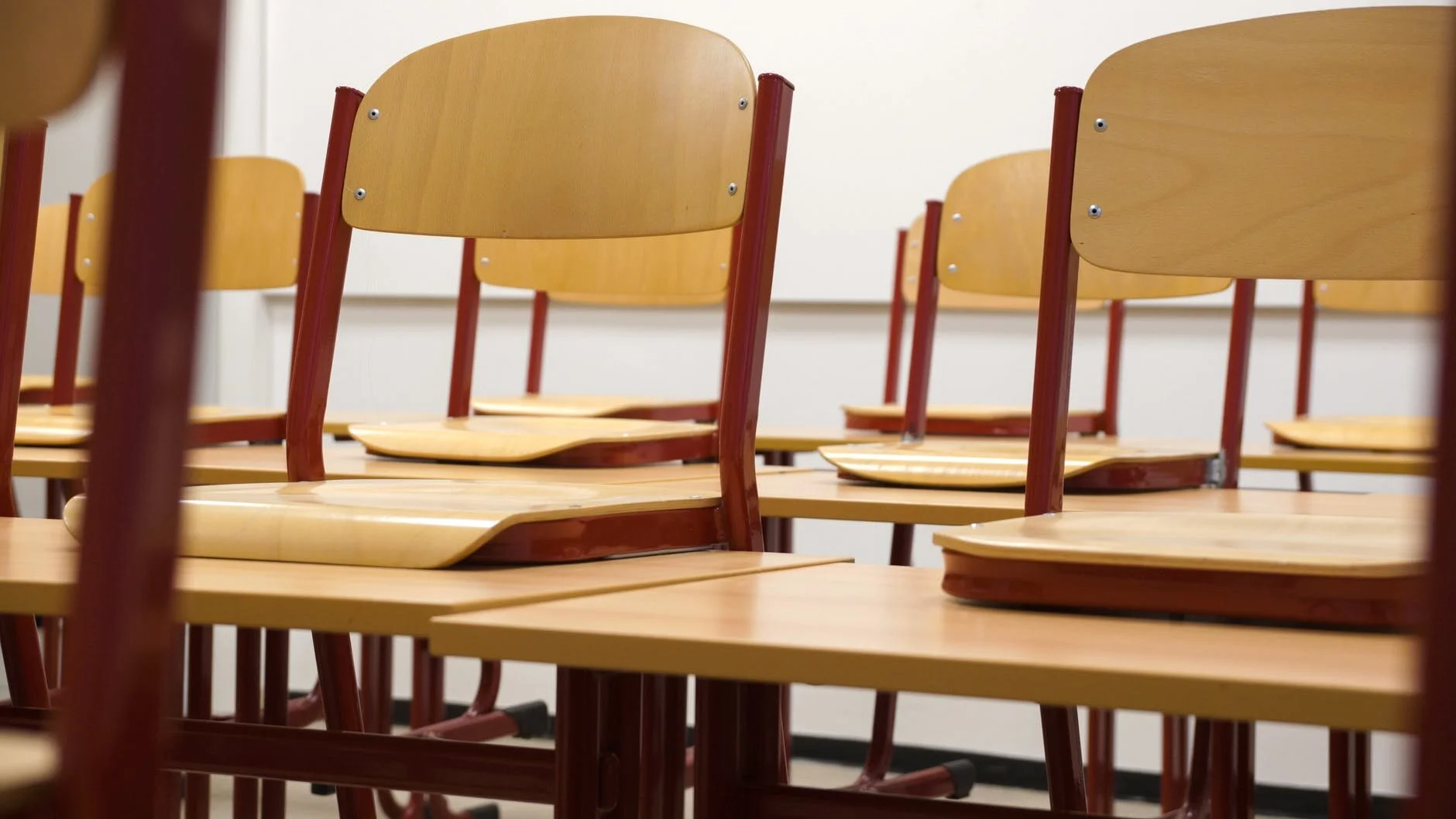Ep. 79: The Role of Doulas in Promoting Racial Justice in Reproductive Health
EQ: What role can doulas play in promoting racial justice in reproductive healthcare?
Guest: Vanessa Bussell is the owner of Butterfly Birth. “She is a Student-Midwife, Doula, Community Health Worker, Health Minister, HypnoBirthing® Childbirth Educator and breastfeeding peer counselor in Tacoma,WA. Vanessa mainly works with underrepresented communities.”
The birth experience is something many of us experience first hand or in supporting someone we love. We’ve discussed some of the topics surrounding motherhoods, advocacy and justice in previous episodes: “Perspective on Childbirth, Motherhood, & Advocacy"with Tobbi Tommaney and "Being a Boob Defender" with Leah Ford.
In this episode, Vanessa shares her story of how she was called to be a doula, the creation of Butterfly Birth, anti-doula bias rampant in hospitals, how to advocate for your birth plan and what it’s like being a black doula. She explains the impact of systems of white supremacy and racism that create birth trauma. To educate yourself, check out the links and resources below.
Related Links:
Vanessa’s blog “Ordinary Brown Girl”
Flor Cruz @Badassmotherbirther
DONA International: Doulas and COVID-19
The Guardian America has an infant mortality Crisis
Champagne & Real Pain:
🥂 Black Women Birthing Justice, Birthing Beautiful Communities
👎🏻Doctors and medical professionals who don’t listen
👎🏻We don't’ have to understand something to respect it
Do Your Fudging Homework:
Annie: History of midwifery - educate yourself about the medicalization of birth and the effort to activate historical knowledge about birthing practices.
Hope: Go check out the organizations supporting Black moms/communities & donate. Great list here at Birth Justice Allies; hire Vanessa as your doula OR support her work by donating to her education journey.
Vanessa: Watch The American Dream and The Business of Being Born
Follow us on Twitter @IWL_Podcast or Facebook: Interchangeable White Ladies Podcast
Don’t forget to pick up your copy of The Body is Not an Apology for the #readlessbasic book club
Ep. 78: Defund School Resource Officers
EQ: To what extent do schools need SROs?
Guest: Megan Holyoke, Lincoln HS Teacher and shit-talker extraordinaire. Previous guest on IWL Episode 29 “Striking While Female”
We begin this episode by voicing our current thoughts on the #defundthepolice and #abolishthepolice moments. Listeners can rest assured that this discussion is not about any one officer but about systems. American policing is rooted in slavery and is now an integral mechanism in our public schools. To be clear, calling for a removal of police from schools is an explicit disruption to the school to prison pipeline. We are asking that the money spent on district partnerships with local police be used to fund social services such as counselors, nurses, social workers, etc. We continue to circle around the notion that white people continue to make excuses and uphold oppressive systems such as policing because they are afraid.
List of Resources Referenced:
The Trace: Do Armed Guards Prevent School Shootings
Ed Weekly Which Students Are Arrested the Most
At the Intersection Podcast, Episode 33: The Normalization of America’s Police State
Champagne & Real Pain:
🥂Restorative Justice Work
🥂Minneapolis Public Schools Terminates Contract with Police Department
👎🏻White people who refuse to understand George Floyd protests
👎🏻People so set in their fear they can’t hear or listen to others
Do Your Fudging Homework:
Annie: Rewatch 13th documentary
Hope: Read some of the links above; listen or read Stamped from the Beginning
Megan: Before you go outward, go inward to examine why you are so defensive
Ep. 77: Racial Healing Is A Crucial Component for Achieving Equity
EQ: Why is racial healing a crucial component for achieving equity in our schools and communities?
Guest: Tovi Scruggs-Hussein is “a visionary educator, author, and award-winning urban high school principal with over 25 years of emotional intelligence training.” Her work on self-transformation and healing through courageous leadership development can be found at Ticiess. Highlights from our discussion include recognizing that educators can be smart and dedicated but still be racist (and uphold racist infrastructure in schools). We further discuss how to make long term change, and grow our compassion for colleagues and students. We cannot serve our students unless we are more balanced in our own personal lives and truly understand our racial and cultural identities. In education, we often ignore that both teachers and students experience educational trauma. It’s only through acknowledgement of this trauma and pursuit of healing that we can achieve equity for all students.
Additional resources:
Do Your Fudging Homework:
Annie: Do some additional research about radical empathy!
Hope: Go read about Racial Healing Allies--download the ebook & sign up for an e-course
Tovi: Please pace yourself (white folks!) and do not burn out.
Follow us on Twitter @IWL_Podcast or Facebook: Interchangeable White Ladies Podcast
Don’t forget to pick up your copy of The Body is Not an Apology for the #readlessbasic book club
Ep. 76: How a Slice of Poundcake Can Change A Community
EQ: How are small business owners coping with the coronavirus pandemic and adapting in this new environment?
Guest: Cassandra Williams--pastry chef, baker, creator She is the founding CEO and lead baker at Love by the Slice.
Cassandra shares the story of how she fell in love with baking and Love by Slice was birthed from poundcake. Through unexpected surprises and challenges, Cassandra focuses on the blessings she received through this business and how she is able to give back to the community. The unexpected opportunity brought on by Covid-19 to create Revive Washington. We don’t just talk about baking but dig into current events and why we hope that when the cameras shut off, people will still be in the game, working towards social and racial justice.
Follow, support and donate to Revive Washington via Facebook
Other Black Businesses to support:
Do Your Fudging Homework:
Cassandra: Ask our selves and write it down on paper—what are our biases (as it relates to race, etc). Identify two or three actions that will help us overcome those biases.
Hope: Support black/women/minority owned business
Follow us on Twitter @IWL_Podcast or Facebook: Interchangeable White Ladies Podcast
Lastly, don’t forget to pick up your copy of The Body is Not an Apology for the #readlessbasic book club
Ep. 75: Keep Calm & Grow Plants
Note to listeners: This episode was recorded the end of May, prior to George Floyd’s murder and ensuing civil unrest. We’ve added an additional 6minutes at the end of this episode for Kat to update us on her business and how her own thinking and learning has changed since that time.
EQ: How are small business owners coping with the coronavirus pandemic and why do we need plants now more than ever?
Guest: Katherine Raz is the owner of The Fernseed, a retail plant shop based in Tacoma, Washington that is now expanding its e-commerce offerings and opening a second location to service floral. You can follow The Fernseed on Facebook.
In this episode, Kat shares her passion for plants and her desire to be a thoughtful, white, female business owner. We discuss things such as gentrification, advice for other small business owners and the impact of COVID-19 on our business and communities.
Do Your Fudging Homework:
Annie: gardening and cottage core Tiktok
Hope: check out The Fernseed and buy plants!
Katherine: replace your Amazon spending with someone local such as King’s Books
Follow us on Twitter @IWL_Podcast or Facebook: Interchangeable White Ladies Podcast
Lastly, don’t forget to pick up your copy of The Body is Not an Apology for the #readlessbasic book club.
Ep. 74: How A Pandemic & Civil Unrest Impacts Mental Health: Perspective from A Social Psychologist
Notes to listeners: This episode was recorded early June and was intended to discuss the impact of the coronavirus on our mental health and the initial responses to the protests against police brutality. There are many key issues we did not cover, but we hope you will find some solace in this episode.
EQ: What impact is the Coronavirus pandemic having on mental health and how are those impacts uniquely burdensome for female identified folx and people of color?
Guest: Michelle Ceynar
The pandemic is highlighting inequities in our society in new ways and exacerbating anxiety and depression around the world. This experience is much like adolescent ups and downs. The inability to recover from all the “fires” makes it difficult to ever fully recover. People of color are not only left out of conversations about mental health but are most impacted because of institutional racism and marginalization.
Related Links:
Related article from Inside Higher Ed
Washington Post: The Coronavirus Pandemic Is Pushing American Into a Mental Health Crisis
Psychology Today: Affective Forecasting
New Study Shows Staggering Effect of Coronavirus on America’s Mental Health
Champagne & Real Pain
🥂Legal Defense Funds
🥂Businesses coming out in support of BLM saying
🥂Conservative “middle” people who are waking up to the situation in America
🥂The Humble grocery store employee
👎🏻Murderers of George Floyd, Breonna Taylor, Ahmaud Arbery
👎🏻White people who refuse to understand George Floyd protests
👎🏻Police officers who aren’t refusing to go to work or standing up to their crew
Do Your Fudging Homework:
Annie: Michelle’s work. Our episode cast a really broad net today, so don’t forget to learn more about social psychology theory and read Michelle’s new research. Psychology Today- The Psychology of Rioting: the Language of the Unheard
Michelle: Do internal HW--start thinking about why you’re responding to “riots” the way you’re responding.
Doug: don’t post fake images—do you homework on anything you post
Follow us on Twitter @IWL_Podcast or Facebook: Interchangeable White Ladies Podcast
Lastly, don’t forget to pick up your copy of The Body is Not an Apology for the #readlessbasic book club
Ep. 73: The Police & Passive White Folks Are the Problem
EQ: How do we make sense of the world in which we presently live? No, really - how? We need ideas.
In this episode, Annie and Hope move through a range of thinking about current events in the US.
Some key points:
For some white people this is their “awakening moment” what many experienced in 2012 with Trayvon Martin’s murder, in 2014 Michael Brown’s murder, in 2016 with Philando Castile & Alton Sterling, 2017 Freddie Gray murder
We need white people to fight white supremacy (especially the “milk toast”, conservative types0
Murder isn’t political. Stop making it that. Neither is Coronavirus for that matter
To what extent is the white response to George Floyd’s murder performative?
White people need to move from actors, to allyship, to being accomplices (see White Accomplices)
We need the political will to address police brutality
It is worth the risk to join the protests and stand up for Black lives
We need to reimagine policing (maybe even abolish the police)
Learn More:
What Say U Podcast Ep 18 “Unapologetically Black”
Wes Moore’s Boo From Freddie Gray to George Floyd (Wes Moore)
#Defundthepolice & #Abolishthepolice
The Guardian:
The Atlantic Defund the Police
Life Hacker Let’s Abolish the Police Force
The New York Times Cities Ask if it Time to Defend Police & ‘Reimagine’ Public Safety
#NerdFarmReads Know My Name: A Memoir
Champagne & Real Pain:
🥂white people who are doing the work and putting their bodies on the line; people of color who’ve continued to lead change
👎🏻 The police!
Do Your Fudging Homework:
Annie: Go learn about the Marshall Project
Hope: Listen and follow Melannie Denise & Audrey Cunningham’s podcast What Say U Podcast Ep 18 “Unapologetically Black”
Listen & follow the podcast Higher Learning w/ Van Lathan and Rachel Lindsay
Read Andrew Hammond TNT “I Could’ve Been a Hashtag”; Manuel Ellis Killing, Tacoma
Follow us on Twitter @IWL_Podcast or Facebook: Interchangeable White Ladies Podcast
Lastly, don’t forget to pick up your copy of The Body is Not an Apology for the #readlessbasic book club
Ep. 72: Liberate & Chill--Embracing a Mindset of Possibility
EQ: To what extent should we still strive to be anti-racist in a world on fire?
Guests:
Kass Minor (she/her/hers) is an inclusive educator who is deeply involved in local, inquiry-based teacher research and school community development. Most recently, along with her partner and husband, Cornelius Minor, she has established The Minor Collective. You can follow Kass on Twitter @MsKass1
shea martin (they/them/theirs) previous guest on episode 69 “Working Toward Liberation”. You can find them on Twitter at @sheathescholar.”
Concretely learning about ways to “work towards liberation” in our classrooms, schools, and communities, is part of the necessary work for anti-racist educators. In the midst of a pandemic that has disrupted every aspect of our lives, many educators are looking for a “place to call home.” In this episode, we interview two of the four co-founders of the collective Liberate and Chill “an immersion online learning experience for anti-racists educators.” Kass and shea walk us through the inception and development of this new collaboration. As we consider this current place and time, we are looking towards the future not as a “return to normal” but a “turn to better.” We’re reminded albeit contradictory, liberation looks like both joy and rest.
Learn more about Liberate and Chill by following them on Twitter and Instagram @liberateNchill
Do Your Fudging Homework:
Hope and Annie Combo Humanities HW: sign up and attend a workshop hosted by LiberateNChill and follow the Nap Ministry
Kass: Art of Gathering
shea: Savage remix Megan Thee Stallion (featuring Beyonce); GirlTrek Interview with Angela Davis & Nikki Giovanni
Follow us on Twitter @IWL_Podcast or Facebook: Interchangeable White Ladies Podcast
Lastly, don’t forget to pick up your copy of The Body is Not an Apology for #readlessbasic book club
Ep. 71: Where's the Discourse on My Students? An Interview on Special Education with Monise Seward
EQ: How do we create systems that support ALL learners with a specific focus on supporting students with disabilities?
Guest: Monise Seward is a 6th grade math and science special education teacher in Georgia, a student advocate, an IEP consultant, and the author of the blog (re)Birth of a Teacher.
Monise begins by sharing her story of what brought her into education and why she chose to work in the world of special education. Even in 2020, special education is viewed as a “place” rather than services. Misconceptions of the purpose of the services has led to few changes in the system over the years. The structure of our schools is stagnant---teachers aren’t receiving the supports and ongoing training they need to provide fully services to their students. Simultaneously, parents and students need to be trained on advocacy. Monise calls out K-12 education as a system which is ignoring elements of the law and refusing to provide the services students need and deserve. As an IEP consultant, Monise developed a resource “A Parents’ Guide to Being in the Driver’s Seat”. Additionally, listeners should read her ideas on her blog including, Supporting Students With Learning Disabilities During a School Shut down and Virtual Learning Cannot Support the Needs of Students with IEPs
If you want to learn more about Special Education:
Sources for Understanding Impact of COVID-19:
Washington Office of Public Instruction Special Education Guidance for COVID-19
6 Ways to Support Students with Disabilities during COVID-19 School Closures
Champagne & Real Pain:
🥂 Special education teachers working under impossible conditions to renew their IEPs this year. For those who don’t know, IEPs have to be renewed yearly and involve families in meetings, which has been made exceptionally difficult by the pandemic. Special education is a right and this work is not optional.
🥂Gen Ed teachers who reach out to Monise asking specific questions so they can be a better teacher to their students!
🥂Karen Pelander (at Clover Park HS) and Roberta Whitesell (Lincoln HS)
👎🏻 All the educators who claim to want social justice classrooms but don’t actively pursue ways to make their curriculum/instruction better for special education students
👎🏻 Don’t ring a bell every time you are doing something you’re supposed to do. Just do it.
Do Your Fudging Homework:
Hope: No homework!
Monise: Reach out ot SpEd co-teachers. Ask your partner, “what are we going to do different next year?” Consider them your colleague and partner together.
Annie: Educate yourself on issues in special education
Find Monise on Twitter @MoniseLSeward
Follow us on Twitter @IWL_Podcast or Facebook: Interchangeable White Ladies Podcast
Lastly, don’t forget to pick up your copy of The Body is Not an Apology for #readlessbasic book club
Ep. 70: On Creating a “Beloved Community” with Kelly Wickham Hurst
Note to listeners: This episode was recorded prior to the corona outbreak in the US so you will not hear any discussion of its impact on this particular topic.
EQ: How can we better understand the double-taxation facing black educators and students in US schools?
Guest: Kelly Wickham Hurst is the founder and CEO of Being Black at School and author of blog Mocha Momma
Recorded in late February, Kelly joined us for an interview while returning home from a conference. In this episode, Kelly recounts her experiences as a woman of color and her journey through education--first as a student and then eventually as a teacher, principal, and district leader. She delves into the double-taxation on Black educators and students and the trauma experienced in public schools. Her current work with Being Black at School sets an example for the rest of us about what it means to develop policies that center the priorities and needs of Black students. “You have to be in right relationships with your white folks and white folks you need to be reconciled with your people of color.”
Advice for those trying to mitigate the double-taxation on Black educators and students:
Do our own work
Collect each other (take responsibility)
Avoid deficits thinking in the way you discuss students & families
Champagne 🥂 & Real Pain 👎🏻
🥂All the amazing Black women who’ve taken the time to come on the show and help us #belessbasic
👎🏻 Betsy DeVos
👎🏻 Those in positions of power actively causing harm
Do Your Fudging HW:
Hope: Read Pushout: The Criminalization of Black Girls in Schools
Annie: “What you can do”
Kelly: Bettina Love “We Want to Do More than Survive”, The Color of Law and other books from #ClearTheAirEdu (check out their website) and Cornelius Minor’s book We Got This
You can find Kelly on Twitter
Follow us on Twitter @IWL_Podcast or Facebook: Interchangeable White Ladies Podcast
Lastly, don’t forget to pick up your copy of The Body is Not an Apology for #readlessbasic book club
Ep. 69: Working Toward Liberation--An Interview with shea martin
Note to listeners: This episode was recorded prior to the corona outbreak in the US so you will not hear any discussion of its impact on this particular topic.
EQ: What does it look like to center anti-racist work and marginalized populations within a k-12 classroom?
Guest: shea martin, “lit teacher, researcher, and community organizer who dreams and works toward liberation with teachers and students across the country.” They also play the jazz vibraphone.
We begin our interview by defining the importance of brunch and setting parameters for a “brunch window” and the necessity of planning for a nap. Then, shea shares experiences growing up in the DC metro area where many teachers of color encouraged academic excellence and called out the hidden potential. However, shea identifies significant experiences that push them out of the classroom and reiterated the fact that many educators often unconsciously project bias without considering its impact on students. Throughout our discussion we circle back to several key ideas but specifically that “identity is elastic and fluid.” If we internalize this idea and adjust our curriculum to reflect this, we are more likely to actually achieve our goal of inclusive and affirming classrooms. shea leaves us with some practical advice:
If you are curating a more “diverse” classroom library, be sure to include books that counter the narrative of oppression of people of color. Your books should also reflect the brilliance of black and brown people.
You will not be able to teach or represent every perspective, but you can be transparent with your students about who or what is being left out (and why).
If you’re trying to do transformative work (such as disrupting white supremacy) you must be prepared. Students need routines and parameters for safe discussions. You, the teacher, need to be extra prepared.
Consider the ways you can incorporate LGBTQ authors, characters, and stories.
Go read Juliet Takes A Breath.
Check out shea’s writing and other interviews:
“Beyond the Letters” podcast
Liberate and Chill (this is an incredible recent project!)
Champagne 🥂 & Real Pain 👎🏻
🥂 Val Brown & Clear the Air Crew; Disrupt Text Ladies; Cody Miller & Josh Thompson, Liz Kleinrock, Lizzie Fortin
🥂 POC at BCCS crew and all our AMAZING STUDENTS; Queering the Classroom
👎🏻 Well-meaning white people who don’t want to do the work; people that don’t wash their hands!
👎🏻 Educators who consistently get names and pronouns wrong.
Do Your Fudging Homework:
Annie: Read 1 Teacher in 10 by Kevin Jennings. I think I’ve recommended this before, but it’s really helpful for understanding the experiences of queer educators.
Hope: Read the post from Crawling Out of the Classroom “If I can’t opt my kid out of the homophobia she will experience, you shouldn’t be able to opt your kid out of reading books with LGBTQ characters.”
shea: Go out and listen to Brittany Howard’s album Jamie
You can find shea on twitter at @sheathescholar or through email: writeshea@gmail.com
Follow us on Twitter @IWL_Podcast or Facebook: Interchangeable White Ladies Podcast
Ep. 68: Throw Out the White Canon #DisruptText Part II w/ Lorena German
Note to listeners: This episode was recorded in mid-February as a part II to episode 65 “Throw Out the White Cannon #DisruptTexts
Shortly after this recording, Lorena German was featured in The New York Times “Bringing A New Vibe to the Classroom.”
EQ: What does it mean to teach in multicultural and multilingual classrooms and communities in 2020?
Guest: Lorena German, classroom educator and Chair of the National Council of English Teacher’s Committee Against Racism and Bias in the Teaching of English and co-founder of #DisruptTexts
In this episode, Lorena explains the origins of The Multicultural Classroom and its mission: “we aim to address the national issue of effectively teaching in multicultural and multi-lingual classrooms and communities. We believe that a culturally sustaining pedagogy can be practiced through targeted professional development.” Lorena also digs into her work on the NCTE Committee Against Racism & Bias and how it’s helped her advance her vision of effective and compassionate teaching in multicultural/multilingual classrooms. She talks about her role in co-founding #DisruptTexts with Julia Torres and Tricia Ebarvia and future projects she’s looking forward to. Read her post “Disrupting Shakespeare”.
Champagne 🥂 & Real Pain 👎🏻
🥂 The Love & Lies of Rukhsana Ali by Sabina Khan
🥂 Black educators on Twitter (i.e. Kelly Wickham Hurst)
👎🏻 Revisionist history and people beating the drum about white history
Do Your Fudging HW:
Hope: Check out our links in these show notes and Lorena’s work! Go buy her book “The Anti-Racist Reading Instruction Workbook”
Annie: “School Segregation is Not a Myth” by Will Stancil from The Atlantic
Lorena: people of color - do the thing. We need you and we need your voice. If you benefit from white privilege, be an accomplice at work and support your coworkers of color.
Follow Lorena on Twitter
Follow us on Twitter @IWL_Podcast or Facebook: Interchangeable White Ladies Podcast
Ep. 67: What A Pandemic Reveals About Education Equity--Teaching & Learning During the Covid-19 Outbreak
Note to listeners: This episode was recorded on Saturday March 14. Some information may have changed by the date this was published. Unfortunately, due to timezone issues, Annie was unable to join the discussion.
EQ: What has this pandemic revealed about issues of equity and access in education?
Guests: Aaron Shelby, Secondary Curriculum Coordinator, and Amy Daraiseh, Learning Support at the American School of Abu Dhabi.
Weeks ago, educators in East Asia transitioned to virtual teaching, offering synchronous (live) and asynchronous learning opportunities for students kindergarten through university level. Many international teachers kept tabs on this progression, perusing social media for what was inevitably coming to all of us. Concerns about teaching students with special needs, supporting English language learners, and managing poor internet connection across the globe were hot topics on many message boards. For better or for worse, it seemed the US was living blissfully in denial of the impending virus that would sweep the nation and ask educators to re-examine what it means to teach and to learn in the midst of a pandemic.
To get some perspective on the logistics of remote learning, listen to the conversation “Teaching Online During the Covid-19 Outbreak” Nate Bowling had with two teachers, Jordan Moog and Michele Curley, from the American School of Abu Dhabi.
In this episode, two of Hope’s favorite colleagues join her for a discussion on the range of equity issues rising to the surface in educating in the “new frontier” of the coronavirus. We discuss special education accommodations, tech access, wrap-around services (food, childcare, medical care), and how to provide social-emotional support to students in a time of crisis. Our conversation has a global framing but Hope weaves in Washington specific data and concerns in order to keep listeners grounded in something more familiar.
Learn about what’s happening in WA state:
WA State bill passed to address concerns around graduation
Everyone should follow Seattle Times Staff reporter Dahlia Bazzaz as she keeps tabs on the impact of the coronavirus on education issues in WA state. Start with this article “First Day of No School”
Around the World:
Champagne & Real Pain:
🥂 to Educator Temporary School Closure for Online Community and all the educators making themselves vulnerable to share ideas.
🥂 Naomi Campbell for telling us to wipe down our seats
🥂 American Community School administration and colleagues
👎🏻 to the ashholes who are hoarding TP and being butts to others during a time of crisis
👎🏻 those who are still traveling which puts others in danger
Do Your Fudging Homework:
Hope: keep sharing your resources, bringing hopeful in the midst of chaos
Amy: channel positive energy and spread it to those around you
Aaron: be good to yourself and check in on your neighbor
Follow our guests on the socials: Aaron Shelby (Twitter) Amy Daraiseh (Twitter)
Ep. 66: Let Black Folks Do What They Want With Their Hair
EQ: How is hair discrimination a not-so-subtle manifestation of racism & white supremacy? Why can’t white folks just let black folks do what they want with their hair?
Guest: Jenna Hanchard is a lifelong community storyteller who has spent her career centering and amplifying diverse voices. Jenna is the leader of Culture & Innovation at The Riveter Co, a women-run co-working and community company poised to become a modern union of working women. She is a three-time Emmy award winner and an Edward R. Murrow award recipient. She was also on the Nerd Farmer Podcast Episode 9 on covering Tacoma and TV News, and Episode 53 “Review in Shadecast”
In this episode, Jenna explains how hair discrimination is rooted in white supremacist ideologies that view hair style as choice rather than understanding the way hair styles reflect culture and history. She shares the story behind Washington state’s HB 2602 (a kind of “Crown Act” bill), led by Representative Melanie Morgan and the intentional language choices in this bill. Jenna gives concrete advice for how to disrupt hair discrimination in the work place (and schools). We hope you leave this conversation challenged and motivated to examine the policies that do/don’t exist in our school districts, our cities, and our states. Call your local legislator using the hotline 1800-562-600 “I’m calling to support HB 2602 because everyone deserves the right to wear their natural hair. Because not passing this bill would directly perpetuate systemic racism in our country.” ALSO, go sign The Crown Act petition!
Context for Hair Discrimination Legislation:
High profile cases for hair discrimination:
Wrestler Andrew Johnson who was forced to cut his dreads in the middle of a wrestling match. Shame on that NJ Wrestling Ref, Alan Maloney for forcing it.
Move to pass legislation:
Progress in WA state:
In January, Seattle Times reported that the legislator was entertaining a bill that would create a set of protected hairstyles (afros, braids, etc).
Pierce County Legislator has it Right: Stop Policing & judging Black People’s Hair
Champagne & Real Pain:
🥂 Texas lawmakers considering ban on hair discrimination
🥂 The Crown Coalition sponsored and supported by Dov
Do Your Fudging Homework:
Hope: Go watch Hair Love and watch you attitude about people's hair
Annie: learn history! Shout out to Teen Vogue for pivoting from vapid fluff to hard-hitting journalism.
Jenna: look and see where your state is--what’s passed, not passed, look at local district policies. If there isn't a bill figure out how to get one started. If there is, go and show up.
Follow us on Twitter @IWL_Podcast or Facebook: Interchangeable White Ladies Podcast
Ep. 65: Throw Out the White Canon #DisruptTexts
EQ: Why is it important to interrogate our notions of a traditional “canon” and create a more inclusive curriculum (especially ELA)?
Guests today are Julia Torres, Tricia Ebarvia two of the amazing women who started the #disrupttexts movement.
To learn more about the work of Julia Torres
Vice-President and President of the regional NCTE affiliate–The Colorado Language Arts Society
To learn more about the work of Tricia Ebarvia
Literacy consultant & fellow for The Educator Collaborative.
Contributes regularly to Moving Writers and Write Share Connect
In our conversation we discuss the impetus for the creation and organization of #disrupttexts and why this is a critical movement for educators in 2020. When we asked which text had met the greatest pushback from traditional canon advocates, we thought for sure the answer would be Shakespeare or Lord of the Flies. Surprisingly, it is the stance against To Kill a Mockingbird and The Great Gatsby that has met the most white fragility. Julia and Tricia remind us that what we value will be what is centered in our classrooms. The inclination for ELA teachers to hold tight to their ideals about the canon are completing rooted in a cultural canon constructed and perpetuated by a racist system. The notion of cultural capital is inherently white and we have to change that. We have to have the knowledge, will, and capacity to do what we can to change this system.
Other References & Resources:
James Banks Approaches to Multicultural Education
Carol Anderson We Are Not Yet Equal
Evette Dionne Lifting As We Climb
Ibram X. Kendhi Stamped From the Beginning
Tiffany Jewel This Book is Antiracist
Liz Ann Baez Aguilar “Having Courageous Conversations in the Classroom”
Val Brown “Clear the Air”
Champagne & Real Pain
👎🏻 👎🏻 Barnes & Nobles “Fake Diversity”
Do Your Fudging HW:
Hope: Go read some of the blog posts on #disrupttexts and then take ONE action to applying an idea in your current unit or build multiple steps into an upcoming unit
Annie: check out past #disrupttexts Twitter chats to see how educators are engaging with this awesome organization
Julia: a) Buy #disrupttexts gear and wear it or give it to a friend b) Read “hard history” and counternarratives--Indigenous History of the US, Stamped by Kendi & Reynolds, Evette Dionne Lifting As We Climb
Tricia: read all the things that Julia said and “The Racial Healing Handbook” by Dr. Singh
Follow us on Twitter @IWL_Podcast or Facebook: Interchangeable White Ladies Podcast
Ep. 64: Why We ALL Need an Equity Literacy Framework
Today’s episode is extra special to us as we get to chat with two incredible educators who are shaping the profession through their interrogation of the personal and professional ways educators perpetuate white cultural norms in schools.
Our essential question is: How can we “learn to be a threat to inequity in our spheres of influence” in 2020?
Guests: Katy Swalwell, Associate Professor of Social & Cultural Studies in the School of Education at Iowa State University, and Paul Gorski, founder of Equity Literacy Institute and EdChange.
We first heard about the equity literacy framework from our guest Marquita Prinzing in Ep 46: Don’t be a Passive Progressive Educator and were incredibly excited when Katy reached out to us to share how she was using the podcast with her pre-service teachers. We are incredibly grateful she and Paul were able to come on the show.
In this episode Katy and Paul describe how they came to this work, specifically unpacking the idea of equity literacy which “moves us beyond cultural competency.” They share how schools and districts are approaching this differently than a simple list of strategies and emphasize that this work is a mindset shift. We highly recommend that listeners spend some time with the Equity Literacy Institute directly.
Finally, we ask Paul to share the story behind his controversial tweet that calls out white liberalism.
Do Your Fudging Homework:
Hope: Read through the equity literacy framework and do a little audit on your life--start first with classroom (the place you have immediate control), then dept/school (larger circles of control).
Annie: follow Paul on Twitter, follow Katy even though she doesn’t tweet very much. Read their work and buy their book when it comes out.
Paul: Teaching Tolerance & New York Collaborative of Radical Educators (NYCORE), Teachers 4 Social Justice
Katy: Carter Center for Black History, Freeminds Free People, Paul Ortiz’s History Book, Dolly Parton's America, Dr. Noreen Naseem @NaseemRdz, NYCORE, Rethinking Schools, Zinn Education Project
Follow us on Twitter @IWL_Podcast or Facebook: Interchangeable White Ladies Podcast
Ep. 63: Rethinking the Purpose of Spirituality in 2020
EQ: What obligation do religious communities have in fighting injustice?
Guest: Dana Coggan is an "environmental advocate, community connector, youth advocate, minister."
Note to listeners: Last January we had Erin Jones on the show to discuss her take on evangelicalism and politics. Today we’re excited to invite Dana Coggan on our show to have a similar conversation but casting a wider net for understanding faith and spirituality.
In this episode we discuss the different between being spiritual and being religious. We share stories of how “the church” can both “shape and scare you.” In sharing our own experiences and hearing Dana’s perspective, we reference a handful of current events such as how organizations like Christianity Today, the Methodist Church, and the Mormon Church are struggling to stay relevant or speak out against injustice.
References:
Champagne & Real Pain:
🥂 Open and Affirming Churches
👎🏻👎🏻 “Evangelicals” and Trump as Jesus; Mormon church abusing tax exemption
Do Your Fudging Homework:
Hope: reconsider the notion of what religion looks like in your life.
Annie: Educators, flex your compassion and empathy with your students from faiths and religious practices that differ from your own.
Dana: Speak out against the displacement of local homeless community
Follow us on Twitter @IWL_Podcast or Facebook: Interchangeable White Ladies Podcast
Ep. 62: Why Social Justice Education Matters in A World on Fire
EQ: How can social justice education help students and teachers be better global citizens?
Today our guest is Christina Torres also known as @biblio_phile.
From Teach For America to leading her own classroom at the Punahou School in Honolulu, Hawai‘i, Torres opens up about her journey as a social justice educator. Throughout the episode we circle back to three major questions:
What is my work in justice now, given my position of privilege?
How can I make my kids feel safe/heard/comforted at this moment in time?
How can I continuously reflect and grow in my own awareness about matters of justice in the world?
We know that our students will face a variety of challenges, injustices and problems in the world. It’s not about what they will experience but a matter of how they might experience it. Social justice oriented educators strive to equip students with the tools to navigate the challenges (not necessarily solve them). We help students understand the “danger of a single story.”
Finally, we explore the tension between staying aware and protecting our mental health/managing tumultuous times through self-care. We share our own strategies for helping students discuss these important issues while managing the array of emotion present in any given classroom.
References & Resources:
Read Christina’s work at any of the following: ChristinaTorres.Org, Teaching Tolerance, Honolulu Civil Beat, TeacherPop, PRX’s OnBeing, and EdWeek Teacher.
Hope especially likes these two pieces: Assessment as an Act of Love; Mindfulness Won’t Save Us. Fixing the System Will.
According to Oxfam global citizenship is a framework where students:
Build their own understanding of world events.
Think about their values and what's important to them.
Take learning into the real world.
Challenge ignorance and intolerance.
Get involved in their local, national and global communities.
Develop an argument and voice their opinions.
See that they have power to act and influence the world around them.
Unesco defines global citizenship in this way, “While the world may be increasingly interconnected, human rights violations, inequality and poverty still threaten peace and sustainability.”
NPR Podcast “Codeswitch”
Do You Fudging Homework:
Hope: read up on global citizenship and why, even if you’ve never left Tacoma or whatever city you’re listening from, you should adopt that framework for your life.
Christina: NPR Throughline podcast
Contact Christina ChristinaTorres.Org or on Twitter @bilbio_phile
Follow us on Twitter @IWL_Podcast or Facebook: Interchangeable White Ladies Podcast
Ep. 61: Fighting for Equity in New Zealand Public Schools
Essential Question: How is fighting for equity in schools a universal struggle?
Sometimes you attend a conference and one of the most powerful takeaways is a connection with someone from another part of the world. When Hope was partnered with Naketa during a pair-share exercise, she knew this was a conversation that needed to be recorded and shared with a wider audience. This week’s episode is truly a GLOBAL conversation. On December 21, Annie braved floods to record in our Tacoma studio. Our amazing guest, Naketa Ikihele woke up bright and early to record with us on her summer vacation (from her car!). Hope tried not to laugh too loudly at 1 am as she recorded in her sister’s dining room in the Philippines.
Naketa Ikihele is a primary school educator, and coach/consultant with Kia Mahira in Auckland, NZ. To start the show, she introduces herself with a traditional opening common in Maori culture that honors her family, tribe, and land. Throughout the episode, we compare NZ and US education systems, specifically focusing on how teachers fight for diversity and equitable educational opportunities for all students. Naketa shares insight into governance and the effort to revitalize cultural pride in indigenous children. She also describes how NZ systems approach challenges such as the recruitment of teachers and supporting vulnerable students. One highlight is when Naketa shares that developing partnerships with parents is starting with a simple question “what do you dream for your child?”
For further study:
Government program New Zealand Now
Webber and MacFarlane’s research The Transformative Role of Iwi Knowledge and Genealogy in Maori Student Success
You can follow Naketa’s work by visiting her websiteKia Mahira or on Twitter @Naketa_NZ
Champagne & Real Pain:
🥂 2019 is basically over. Good riddance.
👎🏻 People comparing Donald Trump’s impeachment trial to Jesus’ trial before Pontius Pilot
Do Your Fudging Homework:
Hope: read one of the links we posted & make room in your mind
Annie: learn more about global poverty from the “We Day” website
Follow us on Twitter @IWL_Podcast or Facebook: Interchangeable White Ladies Podcast
Ep. 60: It's the Most Wonderful Time To Reignite the War on Christmas
EQ: How should we handle holidays in the classroom, are they uniquely special abroad, and what do we have to be thankful for this year?
We review our generally warm feelings about this time of the year, but acknowledge our very Christian upbringings. We delve into why it’s not okay to force Christmas imagery in the classroom even if you are “properly teaching it” or trying to be “exclusive”. We blame Tom Rademacher for restarting the war on Christmas (aka white middle class women) with this tweet:
If you don’t get the reference, check out this article from Snopes on the history of the struggle.
Annie and I reflect on why so many Americans “need” to compare everything to Christmas (Christian) traditions. Go read Stop Calling Hanukah the Jewish Christmas. Finally we toast (pass out hypothetical cookies) to our dear friends and family. We are free with the goal for all the shady folks making the holidays about consumerism and Elf on a Shelf.
Do Your Fudging Homework:
Hope: Teaching Tolerance series : anti-bias guide to the holidays
Annie: make your New Years’ Resolution outwardly focused this year and consider what you can do to make the world a better place. List your favorite social justice causes and dedicate extra attention to them this year.



